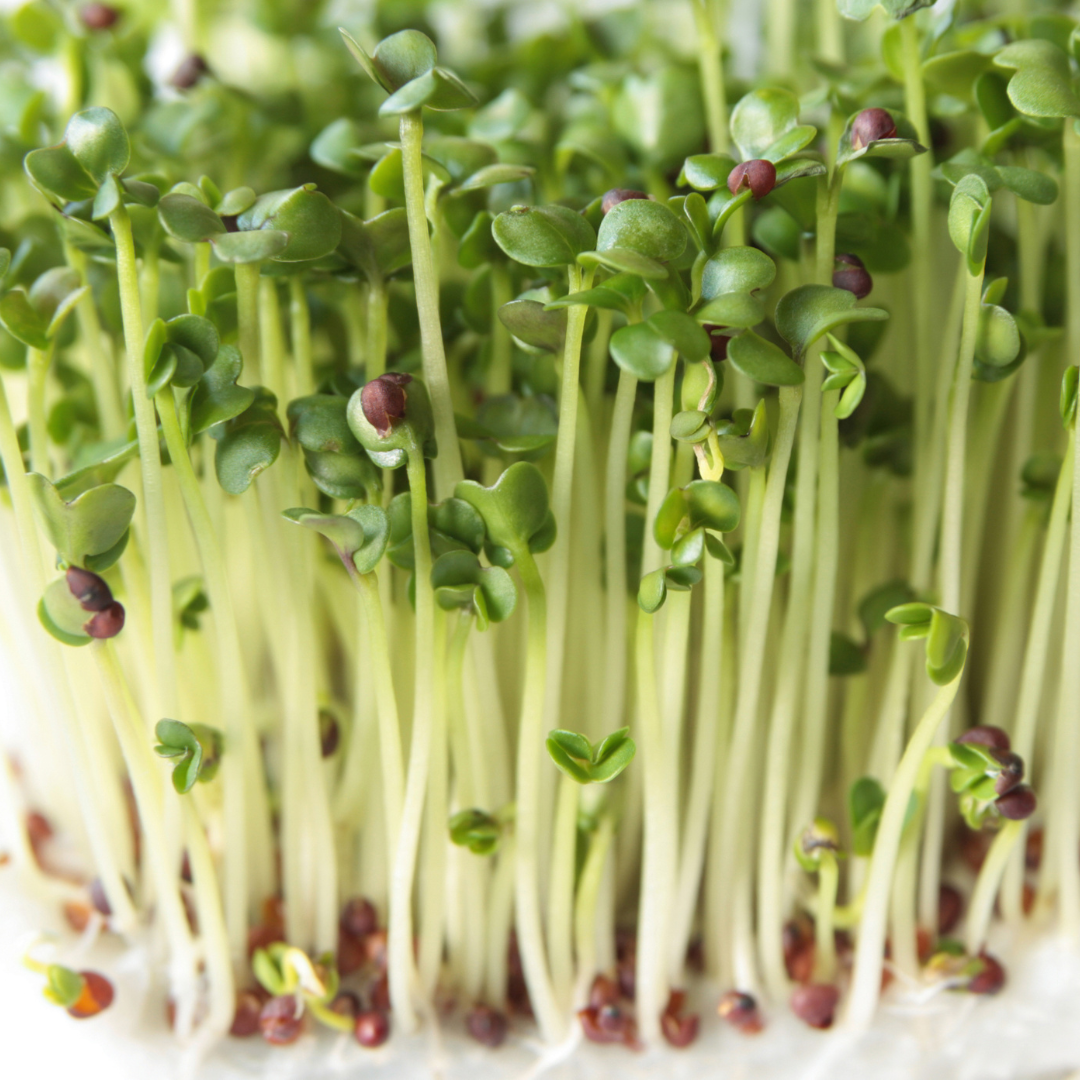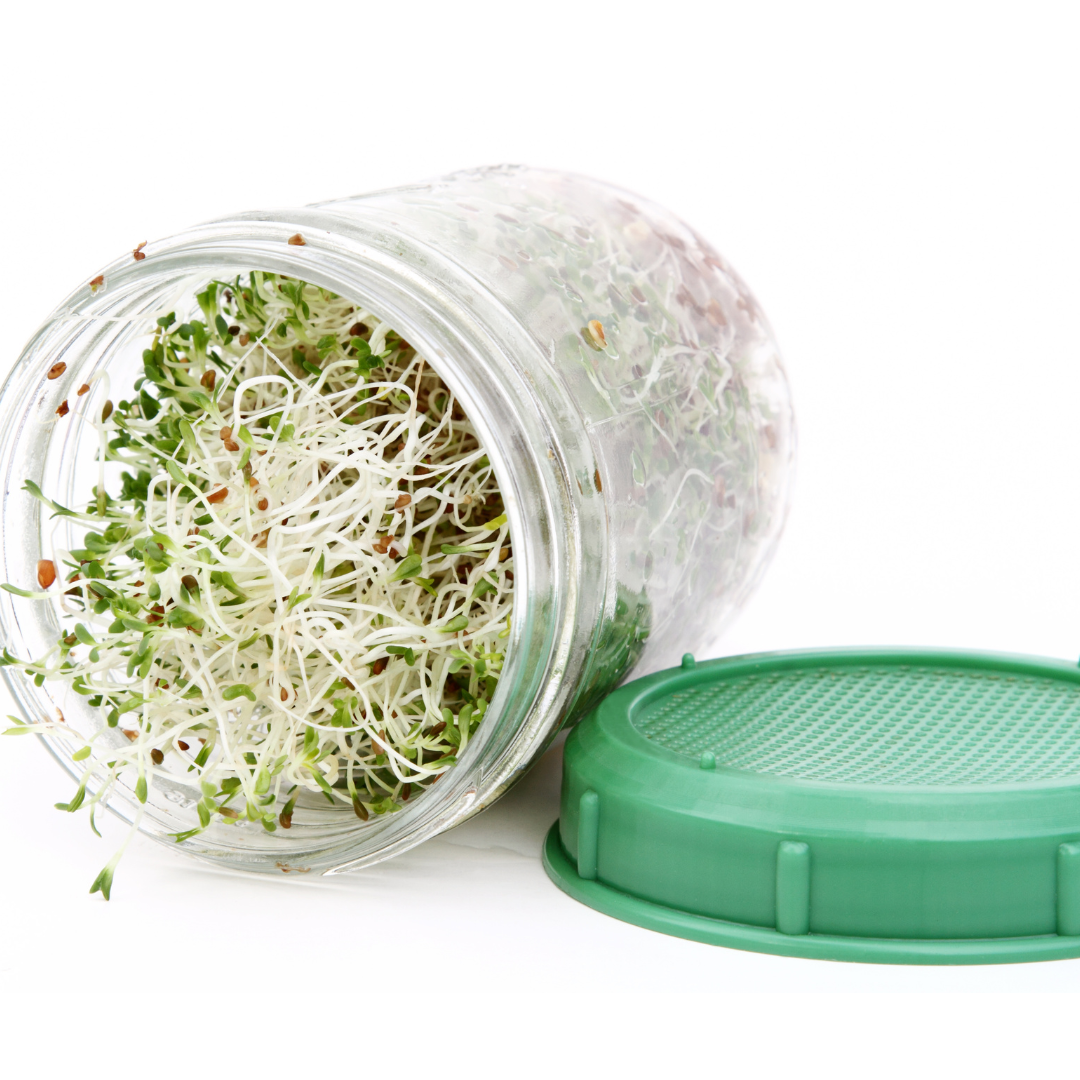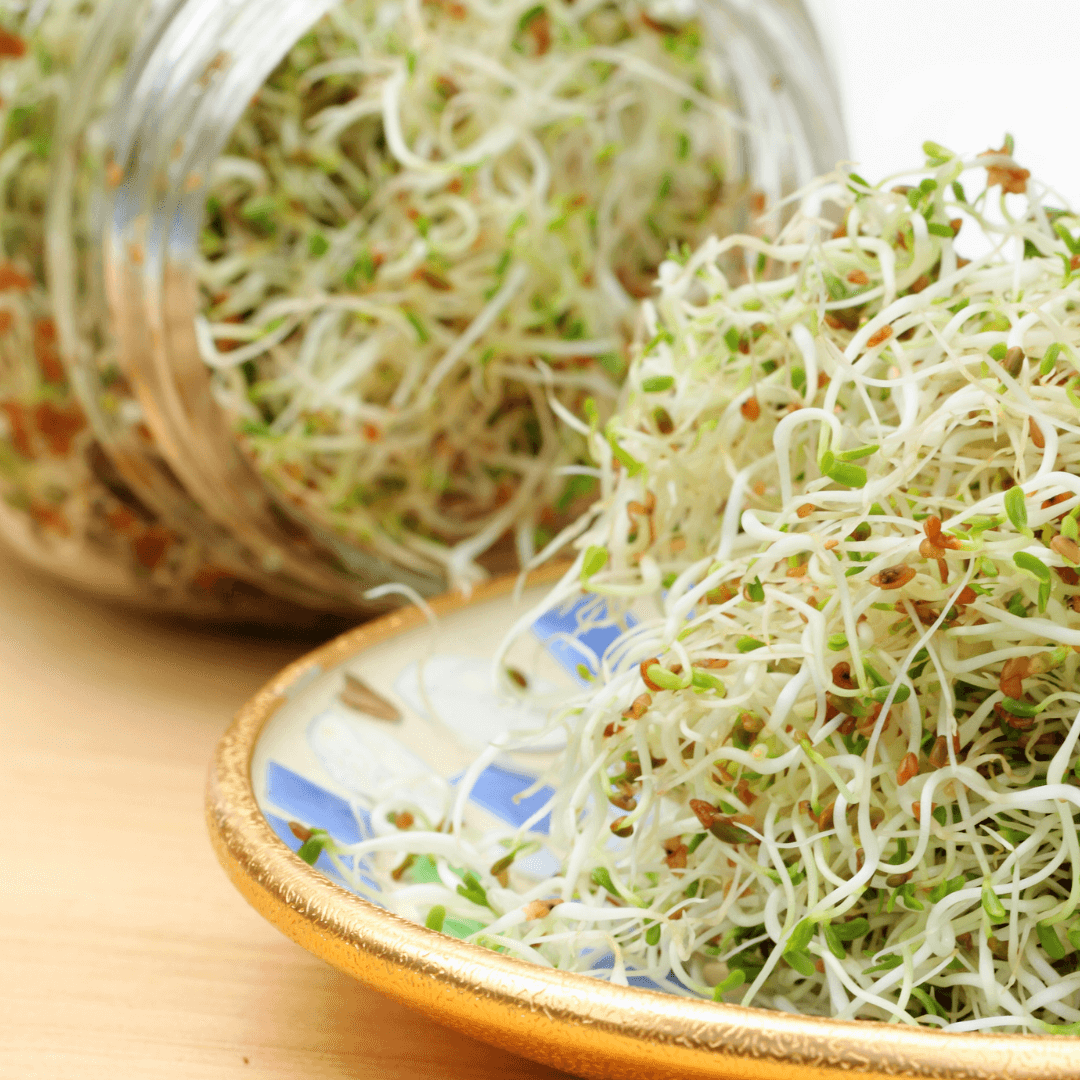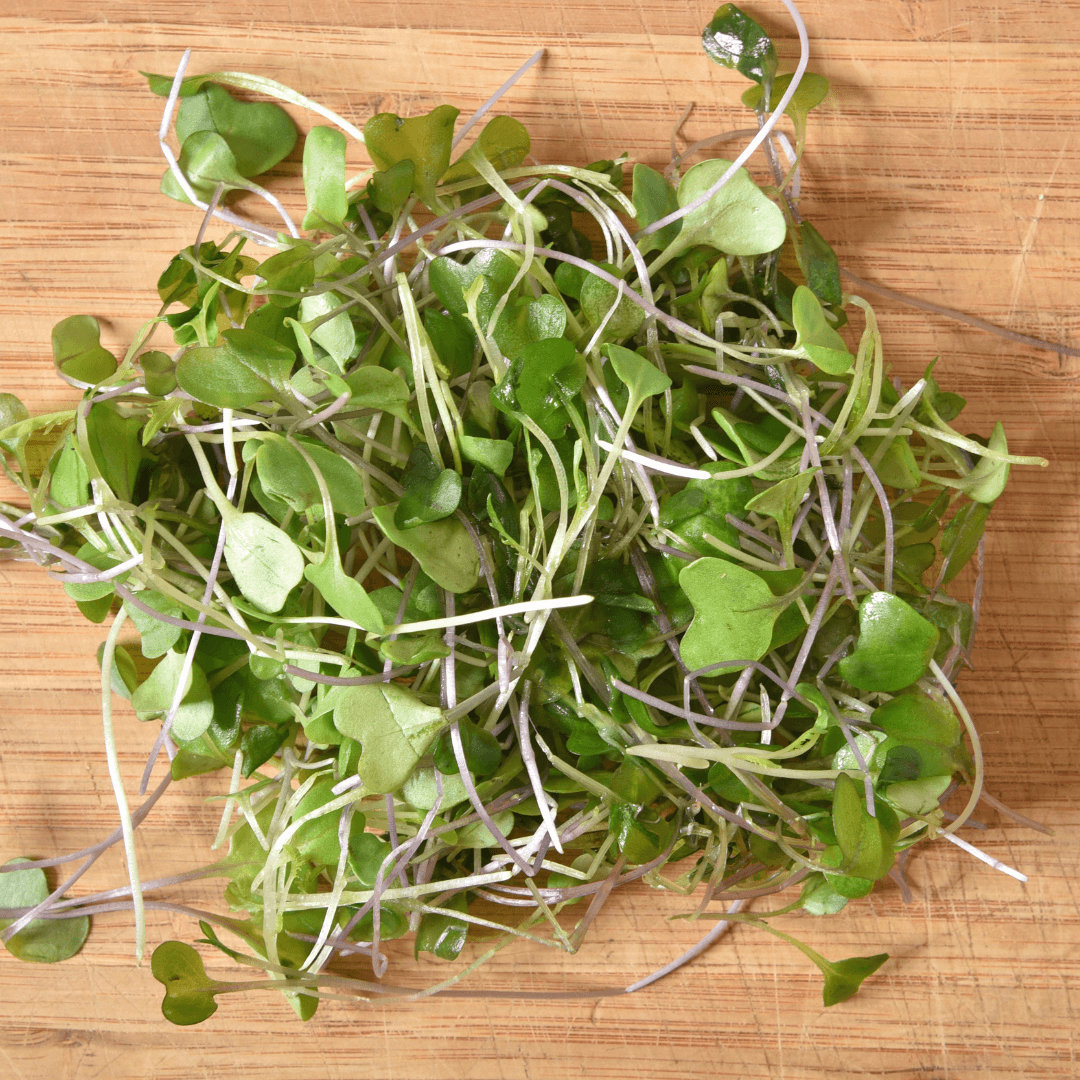Growing sprouts at home is a simple and cost-effective way to add fresh greens to your meals. With just a few basic tools and some sprouting seeds, you can grow your own nutrient-rich sprouts in a matter of days. In this article, we'll walk you through the steps on how to grow sprouts at home.
Why Grow Sprouts?
Sprouts are the young, tender shoots that emerge from germinating seeds. They are packed with vitamins, minerals, antioxidants, and enzymes that are essential for our health. Sprouts are also low in calories and easy to digest, making them an ideal addition to any diet.
Here are some of the key benefits of eating sprouts:
- Boosts your immune system: Sprouts are loaded with vitamin C, which is essential for a strong immune system. They also contain zinc, copper, and selenium, which are vital for immune function.
- Aids in digestion: Sprouts are rich in fiber, which helps to promote healthy digestion. They also contain enzymes that can help to break down food and ease digestion.
- Improves your skin health: Sprouts are high in antioxidants, which can help to protect your skin from damage caused by free radicals. They are also a good source of vitamin E, which can help to keep your skin healthy and glowing.
- Lowers your cholesterol: Sprouts are rich in soluble fiber, which can help to reduce your cholesterol levels. They also contain plant sterols, which can help to block the absorption of cholesterol in the gut.
- Reduces your risk of chronic disease: Sprouts are a rich source of phytonutrients, which have been shown to reduce inflammation and lower your risk of chronic diseases such as heart disease, diabetes, and cancer.
Types of Sprouts
There are many types of sprouts to choose from, each with its own unique flavor and nutritional profile. Here are some of the most popular sprouts:
- Alfalfa: Alfalfa sprouts are mild and nutty in flavor, and are a good source of vitamin K and calcium.
- Broccoli: Broccoli sprouts have a slightly spicy taste and are rich in sulforaphane, a compound that has been shown to have anti-cancer properties.
- Mung bean: Mung bean sprouts are crunchy and refreshing, and are a good source of vitamin C and iron.
- Radish: Radish sprouts have a peppery flavor and are a rich source of vitamin C.
- Wheatgrass: Wheatgrass sprouts are sweet and nutty in flavor, and are packed with chlorophyll, antioxidants, and enzymes.
How to Grow Sprouts
To grow sprouts at home, you'll need:
- Sprouting seeds
- Wide-mouth mason jar or sprouting jar
- Jar lid with mesh or cheesecloth
- Rubber band
- Paper towels
- Cool water
Waltham 29 Broccoli Sprouting Seeds - 1 Pound

$14.95
$19.95
Waltham 29 Broccoli Sprouting Seeds for Nutrient-Packed Microgreens - Heirloom, Non-GMO, Open-Pollinated, Non-Hybrid Discover the joy of growing your own Waltham 29 Broccoli Sprouts, a powerhouse of flavor and nutrition. These heirloom, non-GMO, non-hybrid, and open-pollinated seeds are perfect for… read more
Here's how to grow sprouts in a jar:
- Choose your sprouting seeds: Look for packets of sprouting seeds in health food stores or online. Make sure to buy seeds specifically for sprouting, as regular seeds may be treated with chemicals that are not safe for consumption.
- Prepare your sprouting jar: Place one tablespoon of seeds in the jar. Fill the jar with cool water and let the seeds soak for 8-12 hours. After soaking, drain the excess water by placing the jar upside down in a colander for a few minutes. Rinse the seeds with cool water and drain again. Cover the jar with a piece of mesh or cheesecloth, securing it with a rubber band. Place the jar in a dark, cool location with good circulation.
- Rinse and drain your sprouts: Rinse your sprouts with cool water twice a day, being sure to drain off any excess water each time. After rinsing, place the jar upside down in a bowl to drain for a few minutes. Be sure to rinse and drain your sprouts consistently until they are fully grown.
- Watch your sprouts grow: After a few days, you should start to see your sprouts growing. Continue to rinse and drain your sprouts until they reach the desired length. Once your sprouts are fully grown, give them a final rinse and drain to remove any excess water.
- Harvest your sprouts: Remove your sprouts from the jar and place them on a paper towel. Pick out any seeds or hulls that did not sprout. Store your fresh sprouts in the refrigerator in an airtight container for up to a week. Eat your sprouts raw or add them to salads, sandwiches, or stir-fries.
Tips for Growing Sprouts
- Use cool water for rinsing to keep the sprouts from overheating.
- Make sure to rinse and drain your sprouts twice a day to prevent mold growth.
- Store your sprouting seeds in a cool, dry place.
- If your sprouts smell musty or look slimy, they are no longer fresh and should be discarded.
- Try experimenting with different types of sprouting seeds to find your favorite.
Troubleshooting Common Issues
Growing sprouts is a fairly straightforward process, but sometimes things can go wrong. Here are some common issues that you may encounter, and how to fix them:
- Mold: If you see mold growing on your sprouts, discard them immediately. To prevent mold from forming, make sure to rinse and drain your sprouts twice a day, and store them in a well-ventilated area.
- Seeds not sprouting: If some of your seeds don't sprout, remove them from the jar to prevent them from spoiling the rest of the batch.
- Overgrown sprouts: If your sprouts have grown too long, they may become stringy or tough. Harvest them before they get too long to ensure that they are tender and flavorful.
Conclusion
Growing sprouts at home is an easy and rewarding way to add fresh greens to your meals. With a few basic tools and some sprouting seeds, you can have fresh sprouts in just a few days. Follow these simple steps for growing sprouts in a jar, and enjoy the many health benefits of these nutrient-rich greens.
Waltham 29 Broccoli Sprouting Seeds - 1 Pound

$14.95
$19.95
Waltham 29 Broccoli Sprouting Seeds for Nutrient-Packed Microgreens - Heirloom, Non-GMO, Open-Pollinated, Non-Hybrid Discover the joy of growing your own Waltham 29 Broccoli Sprouts, a powerhouse of flavor and nutrition. These heirloom, non-GMO, non-hybrid, and open-pollinated seeds are perfect for… read more








